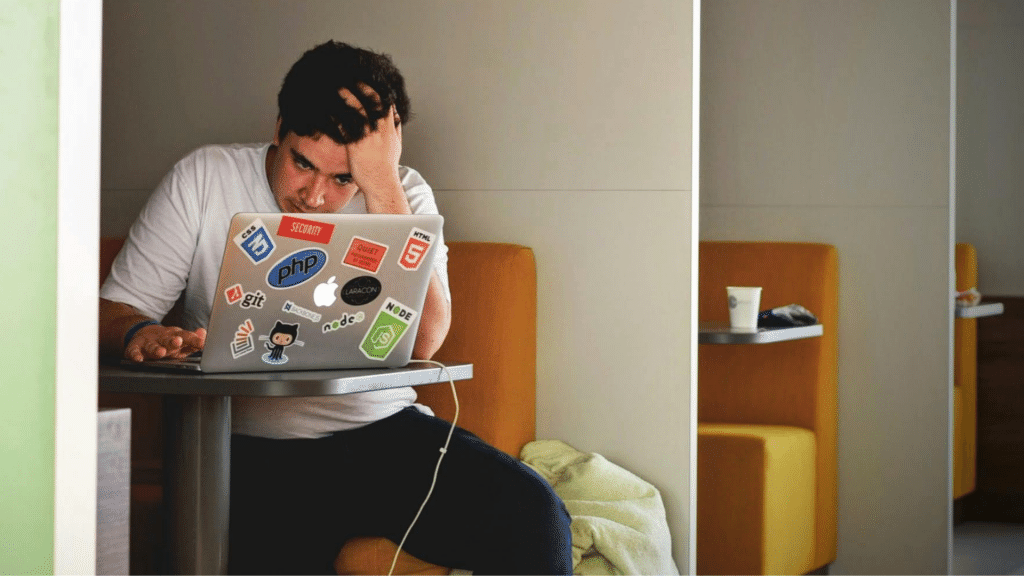World Mental Health Day: Time to Focus on Root Causes
Learning & Development 10th October 2024
 The actor Brian Cox, returning to his role as Logan Roy, bangs the desk to drive home his point: sitting in front of a screen for eight or nine hours a day is “a killer,” he says. The usual HR offerings of fruit baskets and ‘Wellness Wednesdays’ are just a joke.
The actor Brian Cox, returning to his role as Logan Roy, bangs the desk to drive home his point: sitting in front of a screen for eight or nine hours a day is “a killer,” he says. The usual HR offerings of fruit baskets and ‘Wellness Wednesdays’ are just a joke.
It’s not the trailer for a new season of Succession, but evidence that World Mental Health Day is here, and how more organisations are looking to signal their support for employee mental wellbeing. On this occasion, it’s the multinational sportswear business ASICS, which has the budget to involve a TV celebrity to produce clickbait content that links together a hot topic like mental health with corporate social responsibility and its product range, promoting the importance of daily exercise and movement breaks.
The Wellbeing Paradox
Mental health at work has become a cause célèbre. And that, in turn, has meant a need among organisations to demonstrate their commitment through awareness campaigns and initiatives, and the creation of a mini-industry of wellbeing providers.
But there’s a problem. All the openness and positivity around mental health hasn’t led to feelings of safety and wellness among employees themselves; there’s only evidence of the opposite. CIPD figures suggest sickness absence has reached a 10-year high in the UK: employees took an average of 7.8 days of sick leave in the last year — an increase of two whole days over pre-pandemic levels.
More workers are reporting issues with stress and burnout, and mental health is now the most common cause of long-term absence. EAP providers report record levels of usage and, more worryingly, a rising number of ‘red flag’ cases where there is an immediate threat of suicide.
Understanding the Root Causes
How has it happened? Partly as a consequence of the heightened awareness itself; the more mental illness is talked about, the more people self-diagnose, and there’s a cycle of anxiety. The Covid-19 period and years of insecurities and crises have left their mark, leading to more pressures, more self-reflection.
But it’s also important to accept that the approach to promoting good mental health in workplaces hasn’t worked. It’s the age-old problem: the focus has mostly been on treating symptoms rather than the actual causes. So, organisations are happy to fund gym memberships, yoga and massage sessions, meditation apps, and access to helplines because they are straightforward and visible offerings that demonstrate something is happening.
The Role of Workplace Culture
Similarly, there’s training for managers and opportunities for staff to become Mental Health First Aiders. None of which is going to help people struggling with common pressures of workplaces. There’s no acceptance that the workplace itself — for all its potential for positive challenge and rewards and recognition and friendships — can be the problem. The increasing workloads, difficult performance targets, disintegrating relationships, bullying, harassment, and feelings of being unable to cope with it all, how work is running out of control.
Trust and Psychological Safety
Feelings of trust and Psychological Safety are the real source of wellbeing for anyone, whatever challenges and insecurities they have to deal with. So, employees need to feel able to speak up and have difficult conversations when they need to, as a means of moving forward and dealing with what might be a simple misunderstanding, a minor cause for unease, that can either be easily cleared up — and not be allowed to fester over years into de-motivation, disconnection, and ill-health.
As the World Psychiatric Association has highlighted in its new position statement, there is a critical need for organisations to create positive workplace cultures: there has to be primary prevention interventions to reduce workplace stress and tensions, in addition to packages of support around health and mental wellbeing issues as they occur.
Building a Backbone of Support
Introducing ‘Clear Air’ cultures will transform the world of workplace wellbeing. In practice, HR will need to focus on the skills and processes needed both for more openness and understanding of what and where ill-being is having an effect.
That means having good skills and processes. Soft skills like listening, empathy, self-awareness, and curiosity (and how to use them to deal with more difficult conversations). This helps to simplify things for managers, equipping them with practical tools rather than burdening them with myriads of training on many different health and wellbeing areas.
And as a backbone of support: access to mediation and neutral assessment as the norm rather than as a response to a potential crisis or collapse in relationships. Only when a routine of good conversations and practices around disputes are the distinguishing feature of a workplace can there be a genuine sense of safety.
Images by Gerd Altmann and Tim Gouw.